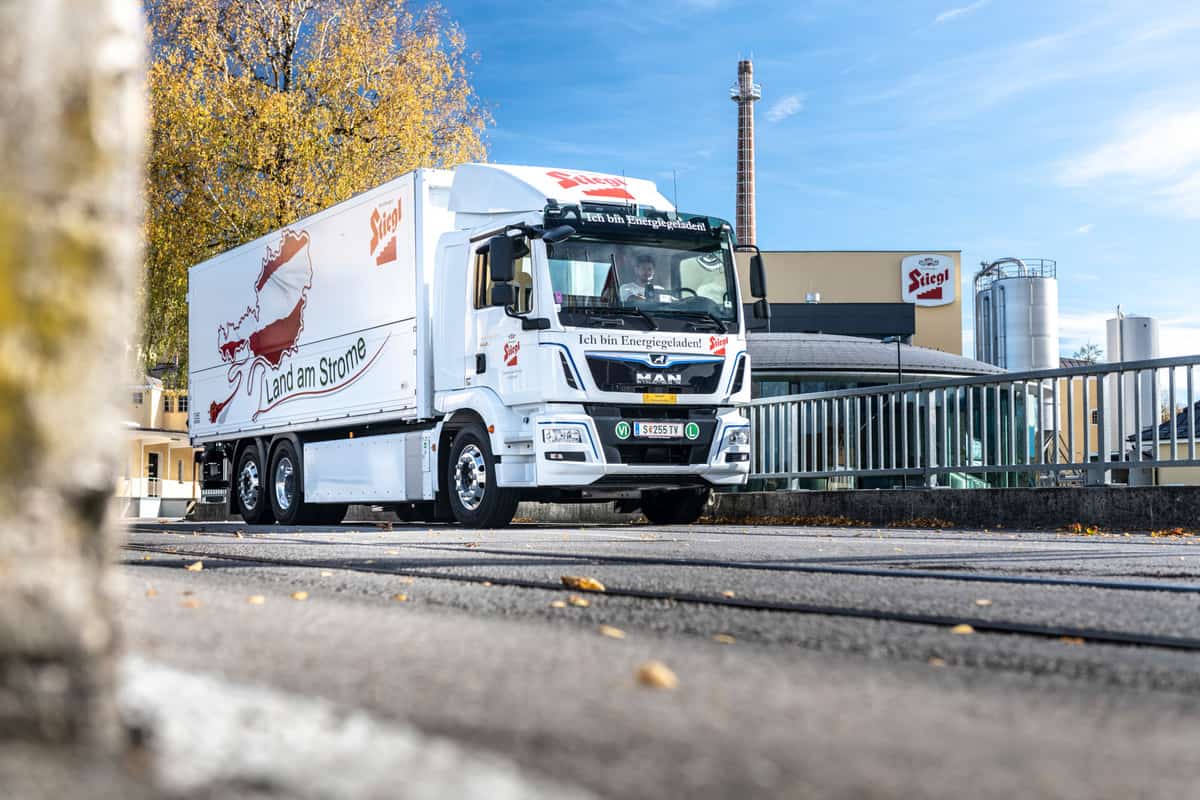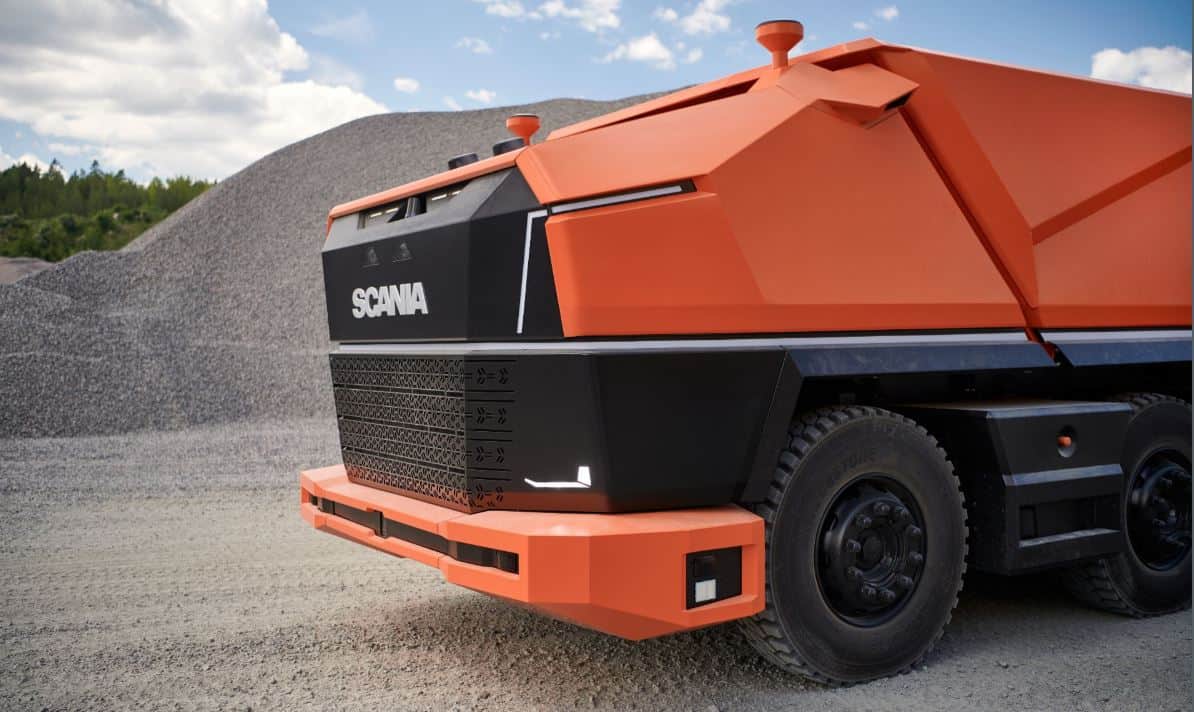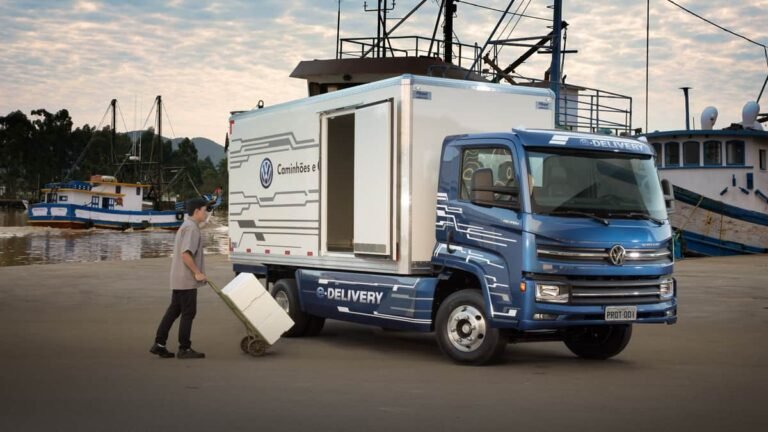Striving to become a global leader in electric mobility and vehicle software solutions, Traton SE has announced investments worth €2 billion by the end of 2025 in electric vehicles and autonomous vehicles.
This was announced by CEO Andreas Renschler on October 2, 2019, at the company’s Innovation Day in Södertälje, Sweden.
“Our goal is to become the leading provider of e-trucks and buses,” Renschler said. “By 2025, we plan to spend a total of more than €1 billion (about US$1.096 billion) on electric mobility.”
Traton, the truck business of Volkswagen AG, will also invest €1 billion in software to digitalize vehicle operations.
“We want to move into the digital fast lane and continue to evolve from a hardware supplier to a software and services provider,” Renschler said.
Renschler said customer interest in electric power is growing, even if the infrastructure is lagging at this point.
“If all the basic requirements are met in time, I predict for our group that within the next 10 to 15 years, every third of our trucks and buses could have an alternative propulsion system, most of them fully electric,” Renschler said. . “A key requirement is that the infrastructure for alternative fuels and electricity must be fully available to ensure smooth operation.”


The total cost of ownership of battery-powered vehicles used in distribution services and city buses “will be comparable to fossil fuel-powered vehicles,” Renschler noted.
Traton leverages its three brands – MAN, Scania and Volkswagen Caminhões e Ônibus, to spread development costs. The modular electric powertrain kit will be used to produce the first all-electric serial city buses operated by Scania and MAN, explained Christian Levin, Chief Operating Officer.
“It can be individually adjusted depending on the brand and area of use. As a result, the largest possible number of individual solutions can be produced with the lowest number of components and costs.
In Brazil, Volkswagen Caminhões e Ônibus announced the formation of an electronic consortium at the Resende development and production complex. The E-Consortium will manufacture and create the charging infrastructure and manage the life cycle of battery packs in electric trucks deployed throughout Brazil.
These trucks will include existing 11- and 14-tonne electric models and the new 4-tonne Volkswagen e-Delivery model.
“Our team has designed and built a pioneering technology configuration and business model that will enable us to offer our range of commercial electric vehicles on the global mobility market,” said Roberto Cortés, President and CEO of Volkswagen Caminhões e Ônibus.
The company said that the electronic consortium includes seven suppliers who will share the responsibilities of building the vehicles. Partners include Siemens, which provides charging infrastructure and equipment, supplying electrical power to the customer; CATL and Moura, responsible for the distribution, management and maintenance of battery packs; Bosch, WEG and Semcon, which will share responsibility for component development and supply.
This e-consortium will provide essential support to Ambev, a Brazilian beer and beverage producer that has already placed an order for 1,600 electric trucks.
Traton has already invested millions in its software capabilities. In 2016, she created the digital brand RIO, which develops digital services for logistics. There are more than 115,000 trucks connected to its open, cloud-based platform, and the company sees software as more important in the development of autonomous vehicles than the vehicles themselves.
Part of these digitization efforts is the continued development of the shared autonomous driving platform. Levine said the vehicles have already been delivered and testing is ongoing.


Scania unveiled a concept car last week, the AXL. The car has been tested at the Rio Tinto mine in Australia since 2018. The AXL does not feature a driver’s cab, and is monitored by a logistics system that tells it how it is performing.
“With the Scania AXL, we are taking an important step towards the intelligent transportation systems of the future, where autonomous vehicles will play a natural role,” said Henrik Henriksson, President and CEO of Scania. We continue to build and experiment with concepts to show what we can do with today’s technology. ”
Later this year, Scania expects to operate an electric, autonomous passenger bus in Nobina, which is part of the Stockholm metropolitan area.
MAN is also involved in independent projects. Self-driving trucks will be introduced into the Port of Hamburg within a few months. The trucks will be driven by drivers on the highway, in some sections in highly automated mode. Once at the port, the driver will exit the vehicle and the truck will continue driving autonomously to the Altenwerder container terminal, where it will be unloaded autonomously before returning to the driver on its own.
Not all innovations will fall to electricity. “High-efficiency diesel engine systems, alternative engines and fuels such as biofuels, ethanol, or LNG and CNG technologies, as well as hybrid and plug-in hybrid solutions play a key role in efforts to reduce CO2 emissions,” Tratton said.
Renschler concluded his remarks by urging leaders in each country to create “an incentive program for electric commercial vehicles and a European charging infrastructure master plan.”





